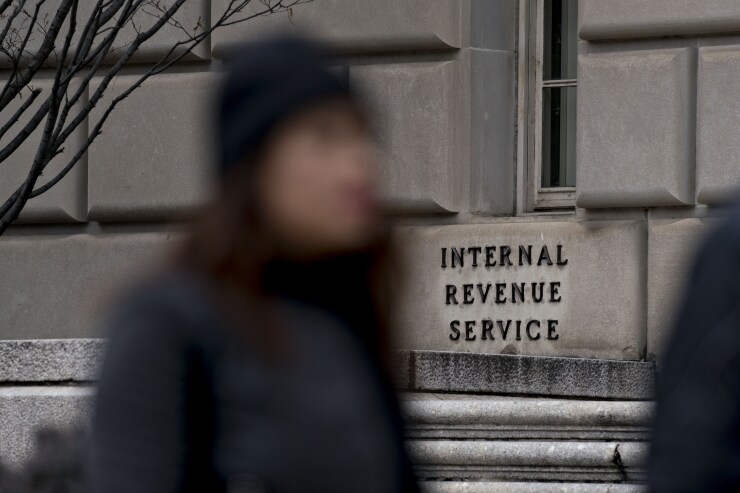The Internal Revenue Service unit that checks employee benefit plans for compliance with various requirements scored dramatically lower on its quality reviews in recent years, according to a new report.
The
The EP Examination program, which resides in the IRS’s Tax Exempt and Government Entities division, is responsible for ensuring that retirement plans comply with the IRS’s qualification, reporting and disclosure requirements, and with excise and income tax matters. Between FY 2018 and 2020, the unit examined more than 17,000 retirement plans to see if the employee benefit plans complied with the IRS’s information return and other qualification requirements. Those examinations are subject to a quality review process by the IRS to see whether the examiners are actually carrying out the right procedures and to identify areas where they can be improved.

The EP Examinations function is responsible for not only employee retirement plans, but also for related trusts, and TIGTA pointed out that high-quality examinations help assure millions of plan participants they will receive the retirement benefits they have been promised. If the IRS examiners aren’t carefully vetting the retirement plans, that could put retirees at risk.
The 23% drop in EP Examinations’ quality scores from FY 2018 to FY 2020 raises concerns and requires management’s attention and effective corrective actions,” said the report. “Further, TIGTA’s analysis of FY 2020 quality review results showed that case quality was worse than reported because quality review reports do not include all errors identified. Additionally, for certain quality elements, five examination groups failed 80% or more of the cases reviewed.”
While the examiners receive quality review feedback at the national and area levels from the Special Review unit, along with recommendations for improving examination quality. However, Special Review doesn’t offer direct feedback to the specific groups or examiners who worked on cases that had errors. That management of the Employee Plans units didn’t hear about specific problems at the local level. Further analysis by TIGTA showed low quality scores in several key areas, including planning the engagement, developing material issues, documenting actions taken, and protecting taxpayer rights.
The report acknowledged that IRS management is taking action to improve examination quality, including consolidating and centralizing improvement strategies that had previously been at the discretion of each area, but the EP Examinations unit hasn’t yet set up performance measures for determining whether those corrective actions are achieving the desired results.
“It is important for the IRS to objectively monitor the effectiveness of corrective actions so that changes can be made if needed,” said the report. “Millions of plan participants rely on the IRS for assurance that retirement plans comply with qualification, reporting/disclosure, and excise and income tax matters.”
TIGTA recommended the IRS require reviewers to record and report all reasons why a quality element failed; periodically analyze cases that failed elements due to “Other” reasons; and consider providing feedback related to quality scores to group managers. The head of the EP Examinations unit should also look for feedback and training for low-scoring elements; make sure the proposed corrective actions are implemented in a timely way; and develop performance metrics and data collection methods to measure the effectiveness of the corrective actions.
In response to the report, IRS management agreed with all of TIGTA’s recommendations and plans to take corrective actions. However, Sunita Lough, commissioner of the IRS’s Tax Exempt and Government Entities division, took exception to some of TIGTA’s predictions of errors forecast over a five-year period. “We acknowledge there were errors in FY2020,” she wrote in response to the report. “However, we disagree with the five-year forecast because we are implementing changes and additional oversight in reporting the reasons for failure of an element as well as preventing these failures from occurring during the forecast period.”





